
Regenerative Medicine Hub
RegenMed Hub™
Regenerative Medicine Business Landscape
One of the fastest growing intersections of biotechnology innovation and business in the nation – the Regenerative Medicine Hub (RegenMed Hub) – can be found in a bustling downtown in Winston-Salem, North Carolina, where the world’s largest regenerative medicine research facility – the Wake Forest Institute for Regenerative Medicine (WFIRM) – anchors the south end of the Innovation Quarter district, which is focused on research, biomedical science education, and business. Not far from WFIRM’s southeast corner of the district is the convergence of major highways that, along with Wake Forest’s partnership with Charlotte, NC-based Atrium Health, one of the top five health care systems, creates an innovation corridor with powerhouse potential. Innovation Quarter has become an epicenter of highly interactive science and technology that has added to the city’s growth as a result of collaborative leadership and vision.
The RegenMed Hub brings together and draws upon the resources and talent available through the Innovation Quarter and includes regenerative medicine focused entities such as the RegenMed Development Organization (ReMDO) that is dedicated to advancing the field, the national headquarters for the Regenerative Manufacturing Innovation Consortium (RegMIC) as well as a regenerative medicine test bed, innovation accelerator and workforce development program. A large number of regenerative medicine start-ups and established companies operate in the hub and the region, offering expansive resources for entrepreneurs and life science professionals. These companies are dedicated to a broad range of technologies, such as 3D printing, stem cell banking, extracellular matrices, and cell and tissue therapies. Additionally, there are also business entities supporting the field in areas such as the production of reagents and diagnostics.
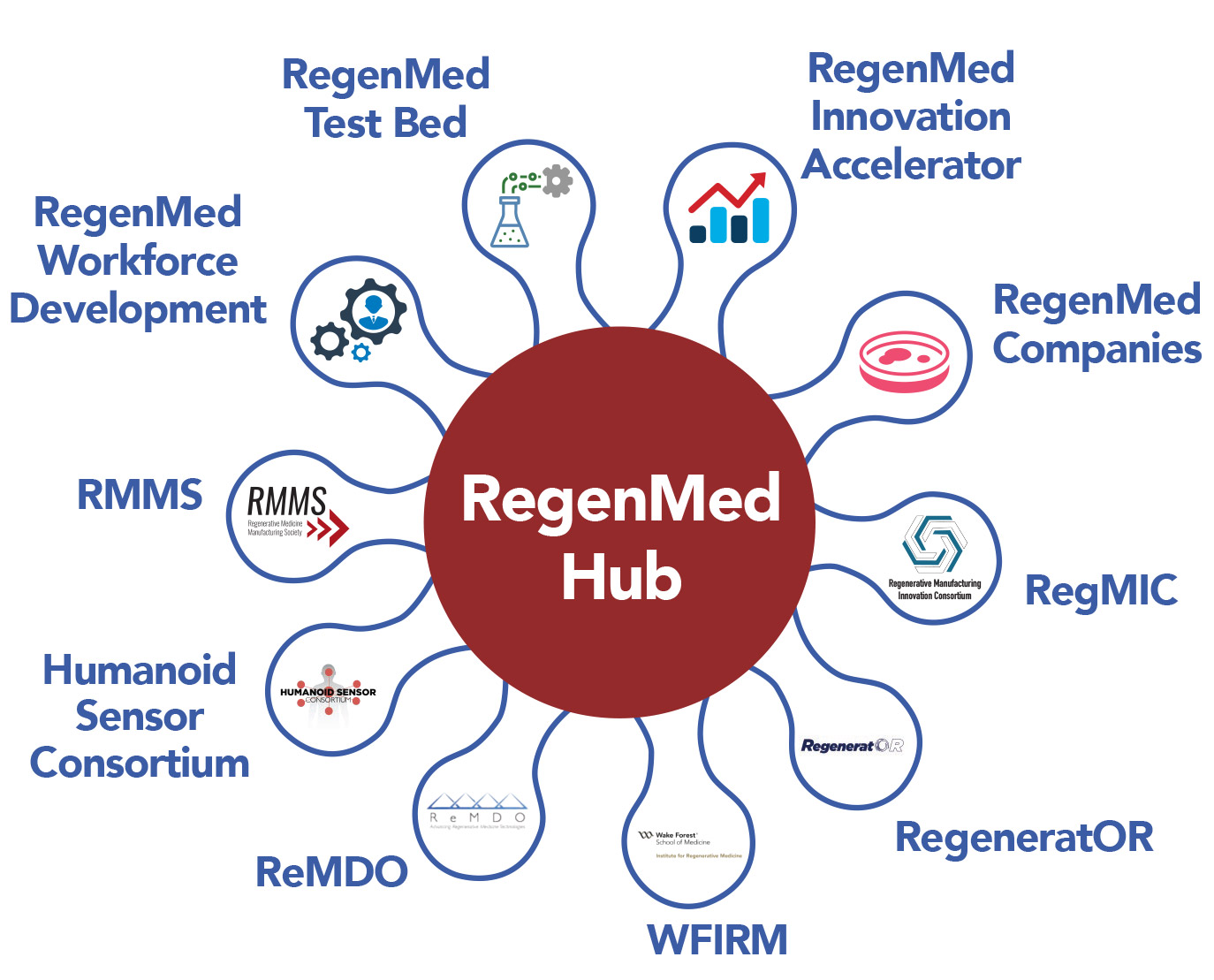
RegenMed Development Organization (ReMDO) Mission Statement
The mission of the RegenMed Development Organization (ReMDO), a 501(c)3 non-profit organization, is to accelerate the discovery and translation of regenerative medicine therapies. ReMDO manages a clinical translation initiative that includes thought leaders, representatives from leading US research centers, government representatives, and companies of all sizes. ReMDO conducts research to de-risk technologies and speed up the translation of regenerative medicine to clinical practice and to the global market.
Delivering on the promise of regenerative medicine will require significant progress in manufacturing to scale up technologies and make them affordable. ReMDO manages a consortium of more than 60 industry and academic members that are focused on making this progress a reality.

As a means of leveraging the resources developed by ReMDO, the RegeneratOR was developed. This initiative, based in Winston-Salem, NC, consists of three parts:
ReMDO’s RegeneratOR Test Bed – seeks to assists regenerative medicine start-ups and growth and established companies with new and emerging technologies through access to advanced biomanufacturing equipment, talent, and programs to support prototyping and product development.
ReMDO’s RegeneratOR Innovation Accelerator – supports innovation from research to commercialization for regenerative medicine start-ups and growth and established companies by providing space and support. The Innovation Accelerator is a key component of the Regenerative Medicine Hub (RegenMed Hub), a regenerative medicine ecosystem recognized as a national leader in regenerative medicine innovation.
ReMDO’s RegeneratOR Workforce Development – a resource that connects an educational ecosystem of colleges, university programs and technical schools with biomanufacturing staff, engineers, and research leaders. With access to training programs across the members of Regenerative Medicine Manufacturing Society (RMMS) and the Regenerative Manufacturing Innovation Consortium (RegMIC), and world class talent, regenerative medicine enterprises can rely on a

Regenerative Manufacturing Innovation Consortium
headquartered in Winston-Salem, NC, identifies and develops consensus on manufacturing challenges through road-mapping efforts and provides guidance on strategic funding areas. The consortium is based on the philosophy that pooling stakeholder talents, resources, and ideas to tackle industry-wide challenges can accelerate breakthroughs on critical regenerative medicine manufacturing challenges for the benefit of all.
Member input and support has resulted in the successful leveraging of over $100 million of funds from government, academia and industry to support targeted solutions. Current ReMDO managed advanced biomanufacturing initiatives include: (1) a universal media to accelerate cell therapy and tissue engineering manufacturing product development, (2) a universal bioink with tunable mechanical properties for additive manufacturing (3D bioprinting) of regenerative medicine products, (3) a modular and scalable bioreactor system for regenerative medicine clinical products, (4) a novel, automated, label free cell isolation platform for tissue engineered and cell-based regenerative medicine therapies.
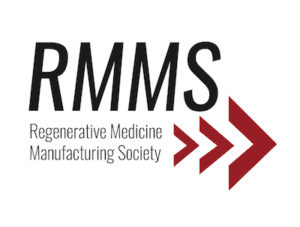
Regenerative Medicine Manufacturing Society (RMMS), is the world’s first and only professional organization dedicated solely to advancing the field of regenerative medicine through manufacturing. Its mission is to identify unmet needs and gaps to catalyze the generation of new ideas and solutions by partnering with private and public stakeholders. Society members who represent industry, government, academia, and non-profit organizations share their knowledge and work together to create solutions to manufacturing challenges. The ultimate goal is to develop standardized manufacturing processes to facilitate the smooth and quick transition of new therapies to market for the benefit of patients. The society provides a platform through working groups focusing on: (1) cell and biomaterials manufacturing, (2) standards, (3) 3D bioprinting, and (4) artificial intelligence enabled automation.

Humanoid Sensor Consortium is an endeavor led by ReMDO to accelerate drug development and personalized medicine with a “Body-on-a-Chip” advanced technology which allows scientists to engineer an advanced 3D model of the human body using a system of chips and microfluidic devices that function in a very similar manner as actual human organs. The consortium’s founding member is Oracle, who was providing Artificial Intelligence expertise.

A leading resource in the field, Stem Cells Translational Medicine, with its publishing headquarters in North Carolina, is the official journal for RMMS.
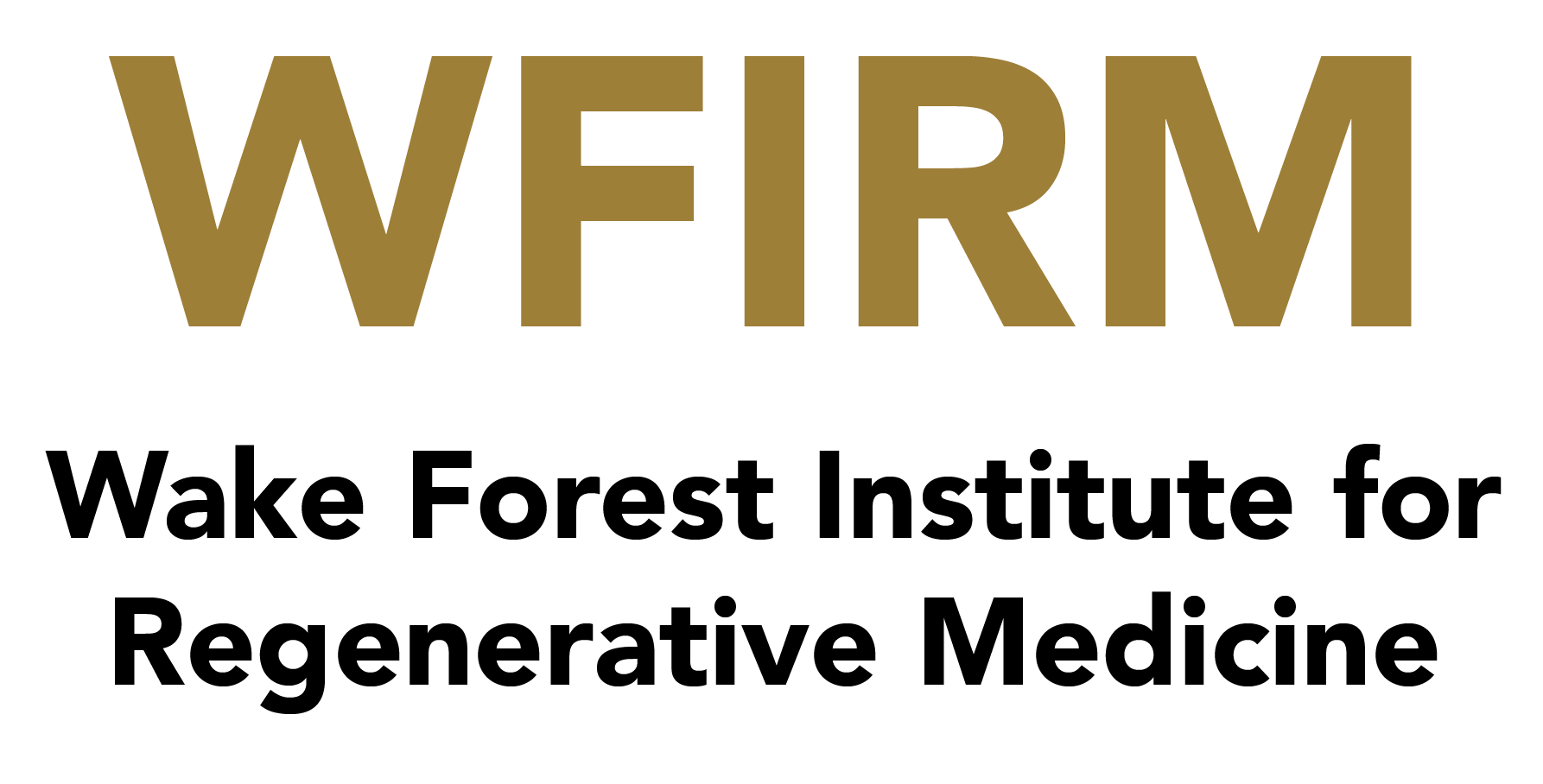
Wake Forest Institute for Regenerative Medicine (WFIRM), the largest institute of its kind in the world, is recognized as an international leader in translating scientific discovery into clinical therapies, with many world firsts, including the development and implantation of the first engineered organ in a patient. Over 400 people at the institute work on more than 40 different tissues and organs. A number of the basic principles of tissue engineering and regenerative medicine were first developed at the institute. WFIRM researchers have successfully engineered replacement tissues and organs in all four categories – flat structures, tubular tissues, hollow organs and solid organs – and 15 different applications of cell/tissue therapy technologies, such as skin, urethras, cartilage, bladders, muscle, kidney, and vaginal organs, have been successfully used in human patients.
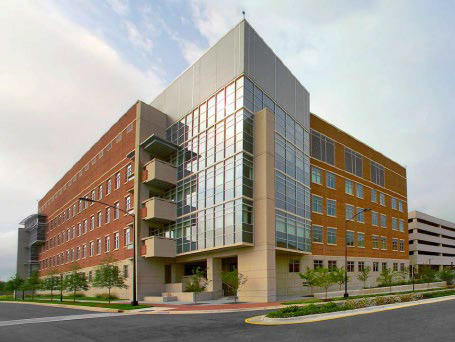
The institute is driven by the urgent needs of patients and is making a global difference in regenerative medicine through collaborations with over 400 entities and institutions worldwide, through its government, academic and industry partnerships, its start-up entities, and through major initiatives in breakthrough technologies, such as tissue engineering, cell therapies, diagnostics, drug discovery, biomanufacturing, nanotechnology, gene editing and 3D printing.
Business Development Programs in Winston-Salem
NC Biotech Center-Piedmont Triad Office is located in the Innovation Quarter in Winston-Salem. The local office engages with leaders from industry, academia and economic development, to discuss strategy and tactics with ongoing efforts to help create regional impact and statewide engagement and growth, and offers expansive resources for entrepreneurs, life science professionals and the business community.
Agile City, formerly known as Venture Café WS, is a 501c3 non-profit foundation that helps enhance and accelerate growth of innovation and entrepreneurship in the city through high-impact programming and events. Agile City builds relationships and helps create intentional spaces, programs and conversations that foster collaboration, ignite creativity, catalyze action and yield solutions to the problems facing humanity today, locally and globally.
Flywheel/New Ventures is a co-working space in Innovation Quarter to assist startups, freelancers, remote employees, small businesses and every kind of entrepreneur, in an innovative culture with open co-working spaces, meeting rooms and more.
Winston Starts is a non-profit startup incubator/accelerator dedicated to nurturing entrepreneurs, helping them develop and scale their business ideas to a level of sustainable success.
National Center for the Biotechnology Workforce (www.biotechworkforce.org) is a national initiative led by Forsyth Technical Community College focused on federally funded biotechnology workforce programs, including the establishment of national skill standards, faculty professional development and best practices. The Center includes the Analytical and Molecular Skills Development Lab that acts as an incubator for emerging companies, and offers lab equipment rental to partners.
Greater Winston-Salem, Inc. works to develop a vibrant, thriving community that’s good for business growth and sustainability. With focus areas in economic development, talent recruitment and retention, career-readiness, and advocacy, its initiatives are designed to help businesses and communities grow.
HUSTLE Winston-Salem exists to facilitate and promote a more inclusive entrepreneurial ecosystem by working with both entrepreneurs and community stakeholders with a focus on advocacy for those who are most at-risk for exclusion in the local innovation economy.
The Center for Creative Economy educates and provides customized mentoring to fulfill its mission to launch, grow, and accelerate creative entrepreneurs and businesses through a creative accelerator program called Velocity, an intensive, high-impact program.
An Award Winning Business Climate
North Carolina is ranked No. 1 by Forbes as the “Best State for Business” reporting its corporate tax rate as the country’s lowest, and labor, energy and tax costs as the second lowest. Rankings look at business costs, labor supply, regulations, economic climate, growth prospects, and quality of life.
North Carolina ranks first nationally in its biotechnology workforce growth for the last decade, and ranks third nationally in the size of its life-science sector. More than 75,000 North Carolinians have bioscience jobs and the sector supports 240,000 direct and indirect jobs. The sector generates $83 billion in economic activity across the state, according to the NC Biotech Economy Report. North Carolina is one of 12 states with a unanimous AAA bond rating.
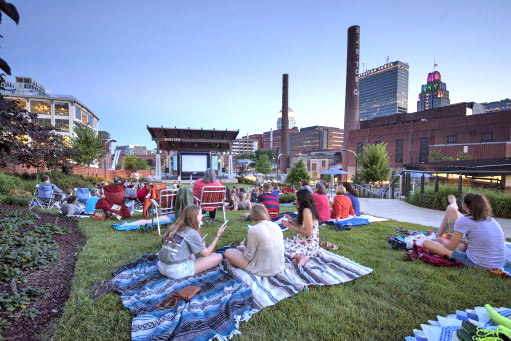
Winston-Salem is included on Forbes’ “The Best Places for Business and Careers.”
Wake Forest Innovation Quarter, located in Winston-Salem’s downtown business district and centered in the North Carolina Technology Corridor, is one of the fastest growing urban-based districts for innovation in the US. The 260-acre park
is home to more than 170 bioscience-related companies in a variety of disciplines and is surrounded by 21 academic institutions.
Winston-Salem ranked as the top city nationwide for small business startups by WalletHub.com.
Several area companies are on the prestigious Fortune 500 list: Truist (formerly BB&T), Hanesbrands, VF Corporation, Qorvo, R.J. Reynolds Tobacco Holdings, Lab Corp, and Lowes Home Improvement. Many other national companies started in the region or have corporate headquarters here and nearby, including Krispy Kreme, Blue Rhino Propane, Inc., Primo Water, Thomas Built Buses, Texas Pete and Ralph Lauren.
Three major airports circle the region: the Piedmont Triad International Airport in Greensboro, the Charlotte Douglas Airport and the Raleigh-Durham International Airport. Private jet service is also available at Smith Reynolds Airport in Winston-Salem.
Livability and Affordability
U.S. News & World Report ranked Winston-Salem, with its proximity to mountains, lakes and ocean, one of the Best Places to Live, giving high scores for desirability, value and quality of life.
Winston-Salem made Business Insider’s list of the 50 Best Places to Live in American, citing a “bargain” cost of living, housing costs below the national average and many cultural offerings.
Winston-Salem is included on Bloomberg Business Week’s list of the world’s 26 “Cheapest Cities for Expensive Living” – offering a high lifestyle for low cost.
MSN.com ranks Winston-Salem as No. 3 of the 30 most affordable downtowns to live in across America.
Realtor.com’s ranking of housing markets lists the Winston-Salem area as one of the Top 10 most attractive in the nation and is the highest ranked of NC’s five urban centers based on growth in home sales and growth in home prices.
Winston-Salem ranks in the Top 5 in best cities for first-time homebuyers by Livability.com, and in the Top 10 for retirement havens by U.S. News & World Report.
About 75 percent of Winston-Salem workers drive less than 30 minutes to work, with 30 percent of workers driving less than 15 minutes. Winston-Salem’s average commute time is significantly less than the national average and less than most all other metro areas in the U.S.

To learn more about the Regenerative Medicine Hub, contact info@remdo.org.
Scan the QR code to visit our website.
